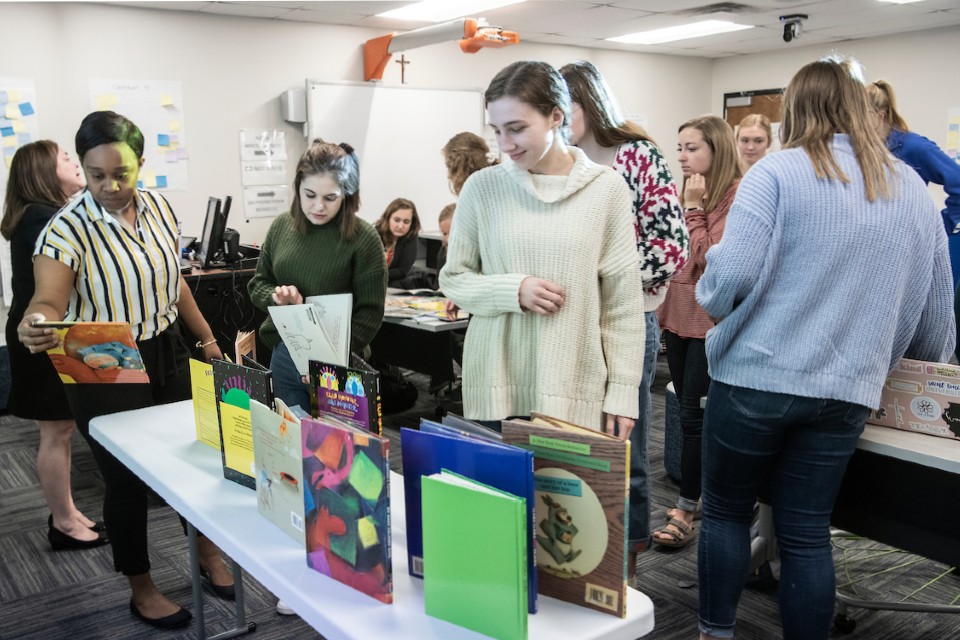Saint Louis University's minor in education develops reflective individuals committed to service, inquiry and value-centered learning who want to add to their education background and develop leadership qualities that include risk-taking, civic responsibility and ethical character.
An education minor is a valuable asset in several careers related to education and schooling. Students who minor in education at SLU are prepared to implement educational programs consistent with their areas of expertise.
SLU's School of Education provides a well-rounded liberal arts background to enhance students' educational experiences. The main objective of SLU's education programs is to prepare dedicated, reflective scholar-practitioners who exhibit the knowledge, skills and dispositions embedded in the school's conceptual framework. The shared values that guide SLU's School of Education include social justice, cura personalis (care for the whole person), excellence, integrity, trust and respect.
Program Highlights
- Students enter a tight-knit community of faculty and peers committed to innovative learning, diversity and the intellectual ideas of the Jesuit tradition.
- Students are prepared to practice cura personalis — care for the whole person — and work for social justice in their communities.
- Students will graduate prepared to collaborate with families, build classroom communities, have high expectations for all students and advocate for social change.
SLU's minor in education utilizes the strengths of its B.A. in education by engaging interested students in the five compass themes of identity, purpose, context, inquiry and praxis. Students who choose to minor in education at SLU are often interested in entering educational settings from birth to 12th grade as occupational therapists; physical therapists; speech, language and hearing specialists, athletic trainers; or as content specialists who may be planning to teach in schools where certification is not required (private or Catholic schools). Our teacher-learning community seminars (TLCs) are purposely designed to engage all these experiences to build robust learning communities for students.
Course List | Code | Title | Credits |
| EDUC 1010 | Introduction to Teaching: Sense of Identity | 1 |
| EDUC 1015 | Teacher Learning Community Seminar (Phase I) * | 1 |
| EDUC 1020 | Introduction to Teaching: Sense of Purpose | 1 |
| EDUC 1025 | Teacher Learning Community Seminar with Field Experience (Phase I) * | 2 |
| EDUC 1030 | Introduction to Teaching: Sense of Context | 1 |
| EDUC 1040 | Introduction to Teaching: Sense of Inquiry | 1 |
| EDUC 1050 | Introduction to Teaching: Sense of Praxis | 1 |
| EDUC 1100 | Reimagining School and Society | 2 |
| EDUC 1200 | Growth, Development, and Learning | 3 |
| EDUC 1300 | Exceptional Learners | 3 |
| EDUC 2015 | Teacher Learning Community Seminar (Phase II) * | 1 |
| EDUC 2150 | Environments for Learning 1: Space and Classroom Design | 1 |
| Total Credits | 18 |
Continuation Standards
Students must maintain a minimum grade point average of 2.00 for acceptance and continuation. Courses must be completed with no grade lower than a "C." A grade of "C-" does not satisfy the requirement.
Apply for Admission
For additional admission questions, please contact:
Saint Louis University School of Education
314-977-3292
slued@slu.edu
